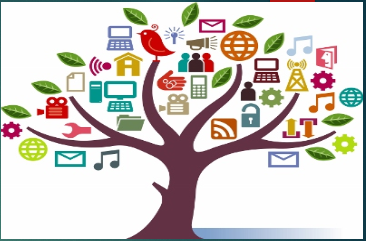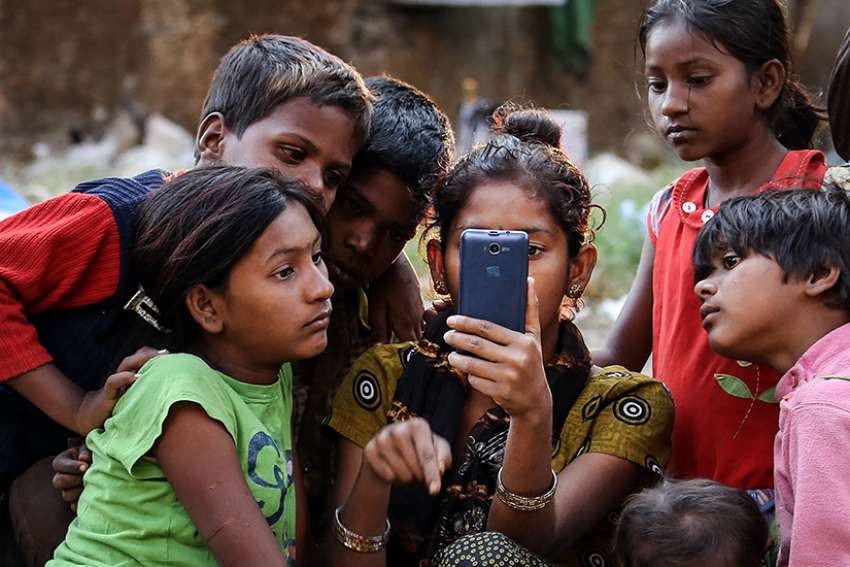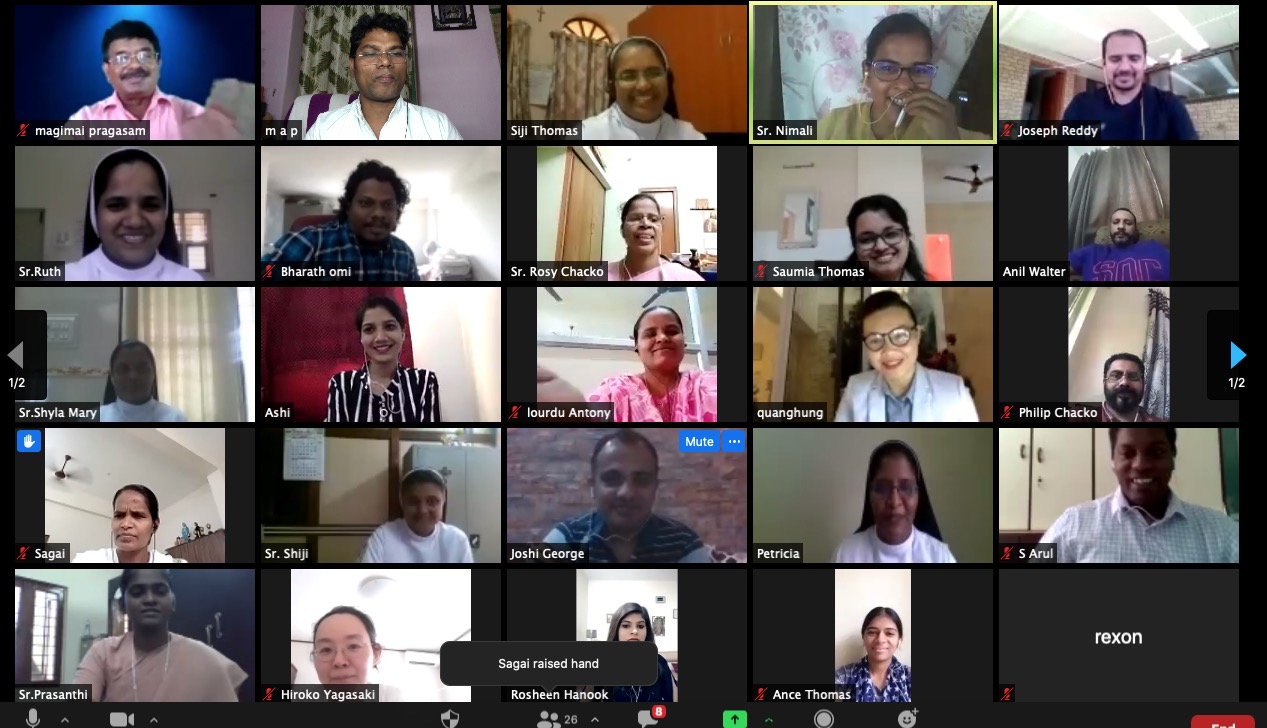Report on Online Media Education Course by NISCORT, New Delhi

by: Saumia Jomon
An online course on media education was conducted from July 23 to August 1, 2020, organized by NISCORT (National Institute for Social Communication, Research and Training), the Media Institution of CBCI (Conference of Catholic Bishops of India). The course facilitator was Dr. Magimai Pragasam, International Trainer and Media Education Professional specialized in Communication and Human Relations. We were about twenty-seven participants from different parts of India, Pakistan, Srilanka, Vietnam, Japan, and Australia.
We had as participants directors of schools, superiors of convents and other institutions, parish priests, directors of diocesan communication centers, teachers and social workers. It was an eight day course with one hour and one of instruction and discussion each day. The participants spent around 15 hours together in total.

A revelation for me!
At first I was quite concerned about this course, but I am glad I signed up, because this has been a real revelation for me. I thought I knew everything about the pros and cons of media, but after attending this course, I realized how inadequate my understanding was.
The world of the media is fascinating and attractive, of which we must be aware; so that we do not fall prey to it. This course opened a window into the many ways in which we can safeguard ourselves from the allure of the media.
We live in a world where a child loves to spend more time with the media. He or she becomes familiar with cartoons and video games at a very young age, sometimes by the same busy parents or babysitters to keep him busy. Thanks to this pattern of behavior, the obsession with the media begins and leads to countless problems later in life.

Media education around the world!
I also got a glimpse of the history of media literacy, how our older generation realized the need to scrutinize the various aspects of the media that paved the way for the rise of media education, educommunication and media literacy in various countries. These studies teach us that one should not blindly take media offerings, but decode, analyze, synthesize and evaluate them.
To do that, it was imperative to understand the key concepts of the media, how the media works and the tactics they implement to entice viewers to watch them, increase the TRP (Television Rating Point), or trick consumers into buying. specific products. Awareness was also created to develop various literacy skills to understand the messages hidden under the colorful advertisements and movies projected in front of our eyes.
This program also taught me to deal with the fake news that bombards WhatsApp windows and FB screens. How to use the fact checker, to verify the truth behind the news, was also discussed. The effective implementation of the CRAAP test could help to reveal the authenticity of a news that piques our interest.

Converting "wants" into "needs"!
A detailed discussion on "Ads" provided a clear picture of the strategies companies adopt to engage consumers through images, captions, and even calculated color selection when creating ads. They take advantage of the credulity of the consumer who ends up buying their ads. products thinking you desperately "need" it without realizing it's something you just "want". Advertisements that inform and entertain us are sometimes adjusted to the use of unethical means for profit.

Movie reviews and media violence!
A study on "Film Review" helped me understand the importance of content, presentation and techniques applied in film making. It requires a critical study of these elements in the making of a film and to investigate the extent to which they have contributed to raising human dignity and values.
The consequences of "violence in the cinema" were also analyzed in detail. The way in which violence affects young, immature and impressionable minds and the alternatives that could be implemented to curb these effects were also studied. Young people should be empowered to disengage while watching a violent scene and made to understand that violence should not be resorted to under any circumstances.

Writing and social media skills!
News writing techniques were discussed in detail, and the task assigned as part of this study gave me practical experience in the field of news writing. I was also able to learn the qualities of a good story and the technique of structuring a news story, starting with the lead (main elements of who, when, what, why and how) before moving on to the body of the news. I also understood the need to encourage students to use their writing skills in creating parish newsletters and magazines.
The module on "Children and social networks" was the most interesting of all, as there is no better time to address this topic than now. We discuss how teens fall prey to the media because their immature minds are fertile and unable to discern the hits and misses of social media, and thus, before they know it, slide into the quicksand of social media. media mania. The various solutions that could be adopted to get them out of the clutches of such addictions were quite revealing.

Let's be responsible parents!
We live in the world of media. Technology has taken over all aspects of life, from a mother's lullabies to virtual friends, teachers, classrooms, etc. Fortunately, or unfortunately, the media is here to stay, and we must learn to live with it by using it for productive purposes and discarding the elements of the media that are harmful to our being.
First, as parents, siblings, and friends, we must try to develop meaningful communication in our families and society. We must educate our children to build strong intrapersonal and interpersonal relationships to help them discern the good and the bad that the media has to offer Just as literacy empowers us, media literacy makes us less vulnerable to the evils that are waiting to attack us. us and our loved ones. Therefore, let us be attentive and responsible to media users and warn future generations, the harm that the media can cause and the importance of media literacy.
My three short and long term goals
Saumia jomon

Short-term goals:
• I will critically analyze the strategies used in commercials and movies as I watch them.
• I will not send any intriguing news without verifying its authenticity.
• I will be cautious when buying a product and think twice if I need or want it.
Long-term goals:
• As a parent, I will be more attentive to the use of social networks by my children.
• As a Catechism teacher, I will make my students aware of the pros and cons of the media.
• I will write an article on how to use the media wisely in our parish bulletin.







